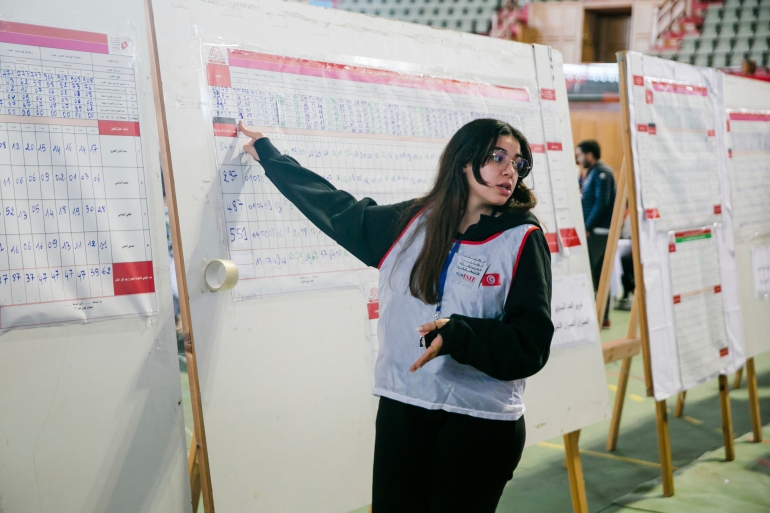In spite of political and economic difficulties, Tunisia is holding its second round of parliamentary elections today.
262 candidates are vying for the 131 open seats as of Sunday morning’s 8 a.m. (07:00 GMT) polling opening.
Special elections will be held later to fill the seats in the seven constituencies where there is no candidate, perhaps in March.
President Kais Saied abolished the hybrid parliamentary system that had been in effect since 2014 by toppling the government in July 2021, freezing the legislature before it was dissolved, and amending the constitution.
With 72% of the vote, Saied won the presidency in 2019, yet Tunisians no longer support him as much as they once did.
Only 11.2 percent of registered voters participated in the first round of voting in December, but 23 candidates won seats without a runoff, with 13 winning more than 50 percent of the vote. Of the 23, 10 ran unopposed.
The second round on Sunday is regarded as the last piece in Saied’s change of politics in the region that gave birth to the Arab Spring. However, the new Congress won’t have much authority to hold the president accountable.
According to the AFP news agency, Ridha, a carpenter in Tunis’s capital who declined to give his last name, said, “I don’t plan to vote.” “I’ve lost all faith in people.”
The 7.8 million eligible voters in Tunisia are expected to come out in low numbers once again as key parties, including Saied’s bitter opponents Ennahdha, boycott the election.
Ennahdha has launched numerous rallies, is refusing to participate in the parliamentary elections, and some of its leaders have been imprisoned.
“This parliament will have very little legitimacy,” Youssef Cherif, director of Columbia Global Centers in Tunis, said AFP, “and the president, who is all-powerful according to the 2022 constitution, will be able to manage it as he sees appropriate.”
Politics “lacks interest” among Tunisians, Cherif continued.
The 12 million people of Tunisia have been preoccupied with more pressing issues as a result of the country’s high rate of inflation and persistent shortages of basic items like milk and cooking oil.
The credit rating of Tunisia was reduced to Caa2 on Saturday by the international rating agency Moody’s, which cited “the absence of comprehensive financing to date to cover the government’s considerable finance needs.”
According to the National Institute of Statistics’ most recent data, the country’s unemployment rate has surpassed 18 percent and reaches 25 percent in its impoverished interior regions, while the inflation rate is 10.1 percent.
Long-term record budget deficits in Tunisia have made it difficult for the country to pay its suppliers of gasoline, food, and medications, leading to shortages of essentials like milk, sugar, and vegetable oil.
In the past year, there may have been an irregular emigration of more than 32,000 Tunisians due to slow growth, increased unemployment, and poverty.
The election is being held in the background of Tunisia’s protracted talks with the IMF for a bailout worth about $2 billion.





